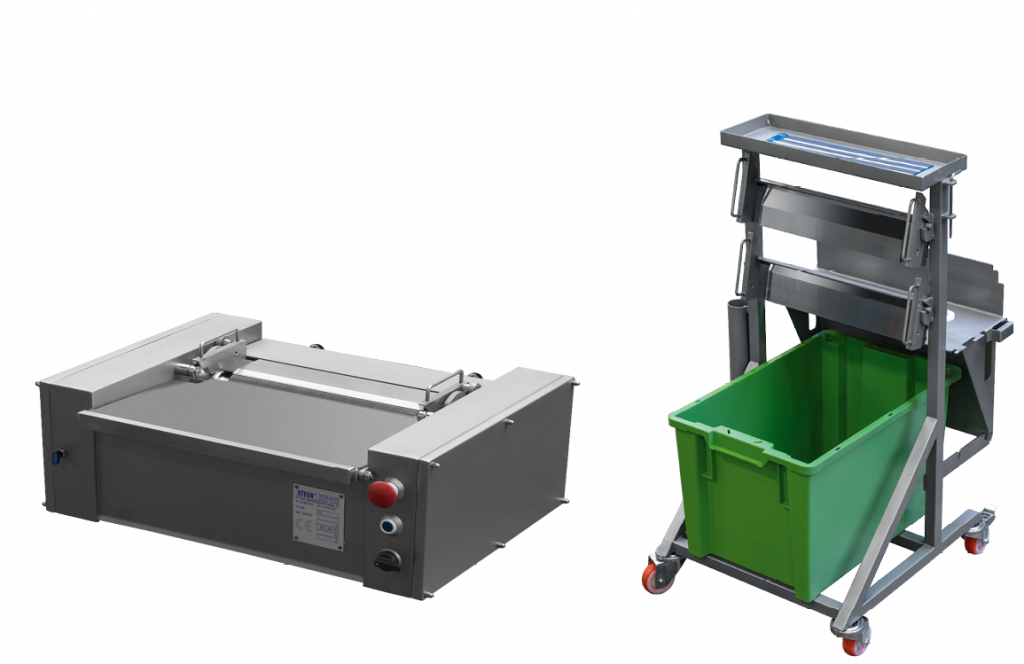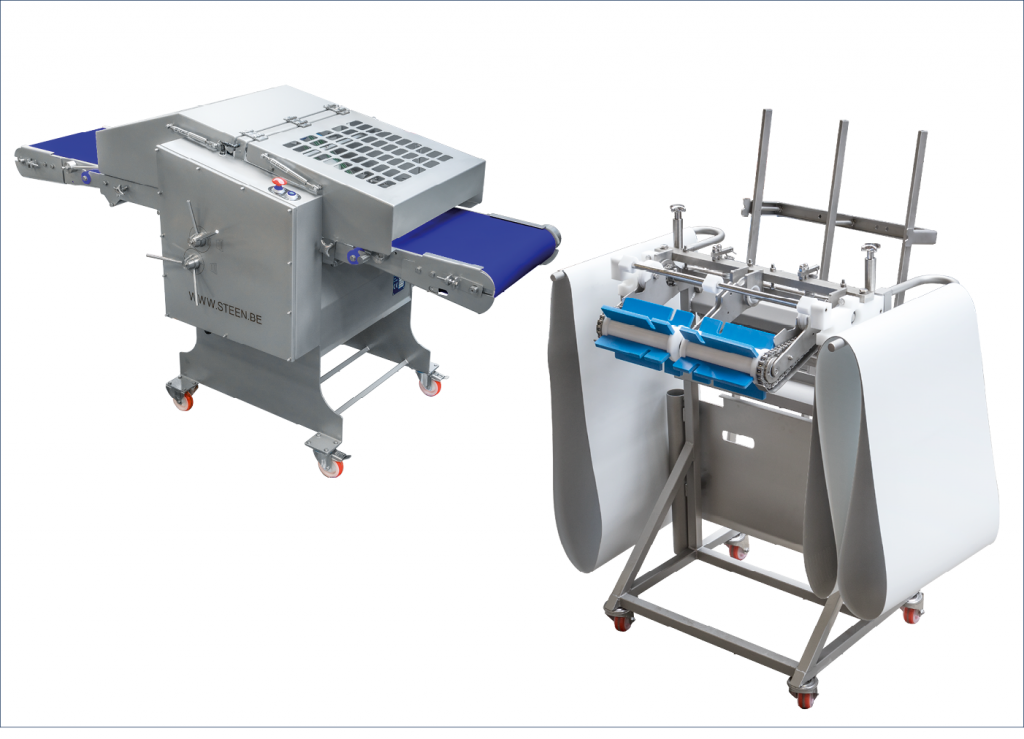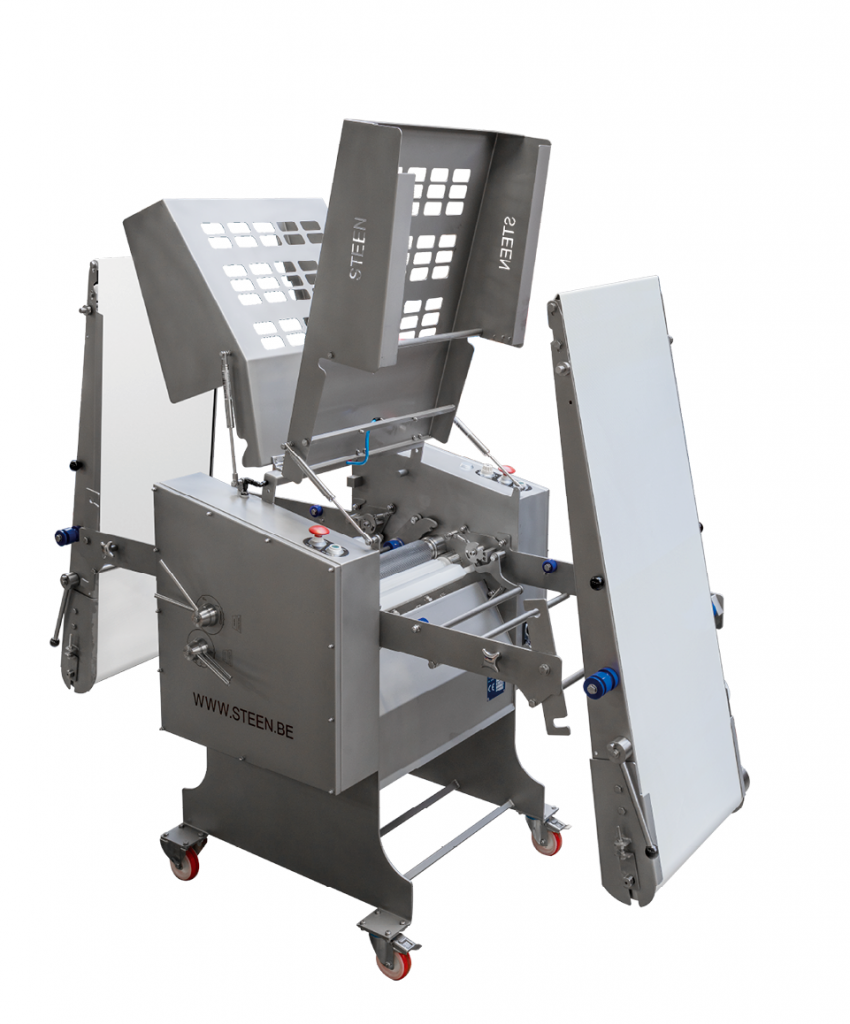With the world population growing, and thus the demand for processed food, there is a growing demand for more hygienic food processing solutions which can help to guarantee product safety. It is obvious that, by automatization, human contact with food is minimized and product safety maximized.
Many years ago, STEEN F.P.M. International N.V. investigated ways to improve their skinning units so they would be easier to maintain and easier to clean, while keeping their strong points. “We have come a long a way from conventional machine building,” says Jan Leuridan CEO at STEEN. “In the 1980’s and even the 1990’s, food processors were happy to find a solution to automate their further processing lines. In the time after that, they sought out equipment that focused on maximizing throughput and yield and now the race is on for highly hygienic and efficient machines. These evolutions are a gift and keep us competitive in this ever changing world. It pushes us to innovate our current equipment and evolve into a newer version of ourselves. The only thing that you must keep in mind, is that you do not lose track of what you stand for and makes you, you. Or in our case what makes STEEN, STEEN.”

Mr. Leuridan continues: “Our company has always put customer satisfaction first. Without satisfied customers, the good company name will be damaged and all efforts of the last 60 years are lost. Not going to happen… So we like to listen to our customers who speak up and tell us what they want or, maybe more important, what they don’t want. That is our key to innovation and that is exactly what we did when we designed our last ST700 skinner series.”

“First, we have re-engineered the inner area of our machines to minimize food contact areas and worked on minimizing areas where product traces can remain in the machine. Prevention is better than the cure! Next, we have made our machines flexible, so they can be easily transformed from a skinning machine into an easy to clean unit. As the use of tools is undesirable, we worked a way around it so the machines fold open and components can be taken out without the use of any tools. Now all the hard to clean areas are easy accessible and exposed and this is very important in making our machines easy and fast to clean.”

“While we were at it”, Mr. Leuridan continues, “we forced ourselves to go further and implemented a second desire of our customers to make machines, that are easier to maintain and faster to repair in case of down time. As quite a lot of our customers are running 2 or 3 shifts a day, it is understandable that preventive maintenance or technical intervention will need to happen at some point and the faster it can be done, the better! By reviewing the frame and by changing some major aspects on our bearing housings, we were able to reduce the time needed for a full standard maintenance to under 2 hours with one technician. This reduces down time to a minimum and maximizes production continuity, which is a highly sought after advantage.”
“Our innovations make sure cleaning time is reduced and puts money in the pockets of our customers. By doing so, our machine doesn’t only reduce the payback time because of the high speed and yield, but also by saving time in the sanitation process and technical (preventive) maintenance.”
If you like the way STEEN thinks, make sure to look at their website: www.steen.be

